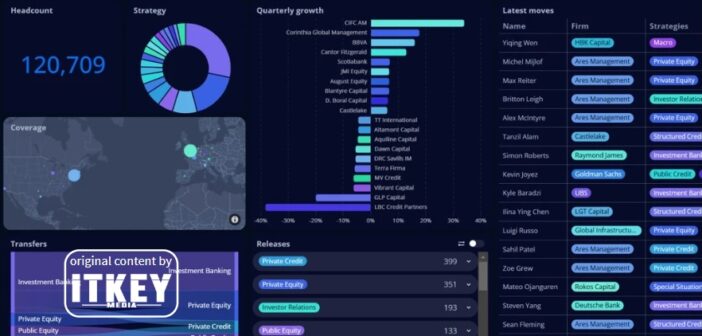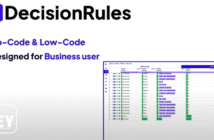- Budapest-based HRTech Qneiform attracts EUR 3M in seed funding to expand its AI-driven talent intelligence platform
- Founded in 2022, it uses domain-specific data to match talent with precision and accuracy
- Its approach emphasizes quality, using curated sources and vertical-specific terminology for better results
- Initially focused on finance, it plans to expand into new industries and global markets
This March, Hungarian AI-powered HR management service provider Qneiform attracted an oversubscribed Seed round of EUR 3M. The round was co-led by DayOne Capital and PROfounders, with support from the startup’s earlier backers Keen Venture Partners and DFF Ventures.
Qneiform is a Budapest-based AI-powered talent intelligence platform founded in 2022 by Thomas Percy. The platform combines proprietary data with expert domain-specific research to provide organizations with precise visibility into talent pools and market trends, enabling them to optimize human capital decisions. With additional offices in London and Amsterdam, Qneiform sees its mission in revolutionizing recruitment by offering actionable intelligence and streamlining the talent acquisition process.
The Founder, the Location, and the Naming

Thomas Percy, Founder and CEO at Qneiform
Mr Percy comes from the background of hiring responsibilities at legacy companies and larger hedge funds in the UK. He admits that he got frustrated when encountering obstacles to doing his job the way he deemed best. Namely, time after time, an apparently less worthy candidate got the job because they fit the specific requirements better. As such, the founder-to-be envisioned a system that would be less bureaucratic and more meritocratic, and this is what Qneiform strives to build – more of a ‘market universe’ where companies and hiring managers can find ultimately fitting candidates, as assured by the trusted system.
‘With Qneiform, we got excited from the first moment: it had something to do with our belief in backing extremely obsessed founders. Thomas was a violinist in an orchestra, a competitive athlete, and a headhunter who learned to speak Hungarian in just three years. We felt that no matter what he does, he wants to excel at it,’ DayOne Capital’s managing partner György Simó comments.
‘Hungary seemed like a perfect location to start it not only because of cost efficiency, but also because there are splendid schools here, but local aspiring youth often don’t believe that they can do something worthwhile here, in their home. Gifted young talent gets hired, quite willingly, by large international companies, and apply themselves elsewhere, whereas in reality, at the very least, this is not the only variant for them. I thought it would be nice to demonstrate an alternative and show how world-class product can be created and operated in Hungary,’ Mr Percy adds.
The name ‘Qneiform’ /KJU-ni-form/ was inspired by cuneiform—the earliest writing system that stands between hieroglyphs and phonetic writing, making it universal. For example, the Aramaic language used cuneiform, and this nation made the first map of the world – in this language. Thus, the name is meant to highlight both the platform’s universality and its similarity to the map of the world.
A Better Application of AI for HR

Djoni de Vos, Principal at Keen Venture Partners
Keen Venture Partners’ principal Djoni de Vos tells ITKeyMedia that her team was very impressed by the deep industry knowledge of Thomas, the founder, and his understanding of the painpoint he was solving from the get-go. Combined with a relentless enthusiasm, big vision, and very happy customers made it a no-brainer to invest.
‘Essentially, we are an AI talent intelligence platform for larger companies and third-party hiring services, but what sets us apart is that we are more selective about what we feed to our LLMs. Instead of trying to cover the entire world, we focus on fitting candidates to the specific services that they are meant to provide to the company, with a heavy focus on vertical-specific terminology,’ Mr Percy explains.
‘It’s easy to say that there was no hardware for a solution like ours previously, and it’s true to a large extent. However, the problem that we are solving—the inaccuracy of a fit between a candidate and a position—was deemed unsolvable so much so that a solution wasn’t really sought. Whenever a firm wanted to remedy it, it had to be done manually case by case. At the same time, looking back, I can think of some relevant instruments that have been at hand for quite a while,’ the founder comments further.
New Investment and Expansion Plans
Qneiform’s plans to use the newly secured funding for expansion—both to new geographies and to new verticals. Currently, the platform only works with finance. As mentioned, the initial goal was to create a ‘universe’ for this vertical where only the relevant information played a role, and this required profound domain knowledge, for example, to use the correct terminology for positions, roles, etc. – which can vary greatly between verticals.
As such, entering any new vertical requires developing domain expertise, including building taxonomy, which, in turn, requires identifying correct sources.
The same goes for entering new markets: since we work with LLMs, we need to be lasersharp about our taxonomy and terminology. Speaking of sources, Mr Percy points out how some jurisdictions don’t even have the relevant sources in digital format, only scans from printed editions. In such cases, Qneiform will have to employ OCR.

György Simó, Managing Partner at DayOne Capital
‘The talent intelligence market for the financial industry seemed like a fine, but not a huge opportunity to us. Through customer interviews and our own research, we learned more and more about it, and we were surprised how significant its potential is,’ Mr Simó states.
Overall, Qneiform sticks to its original grand plan: to cater to global audiences by providing world-class hiring assistance and tackling one of the most persistent inefficiencies in hiring—matching the right talent to the right role—with precision and purpose-built AI. By focusing on domain-specific expertise and building vertically tailored talent ecosystems, it offers a smarter, more meritocratic alternative to outdated recruitment methods. In doing so, Qneiform not only improves employee performance outcomes but also empowers companies to unlock the full potential of global talent.

Kostiantyn is a freelance writer from Crimea but based in Lviv. He loves writing about IT and high tech because those topics are always upbeat and he’s an inherent optimist!





